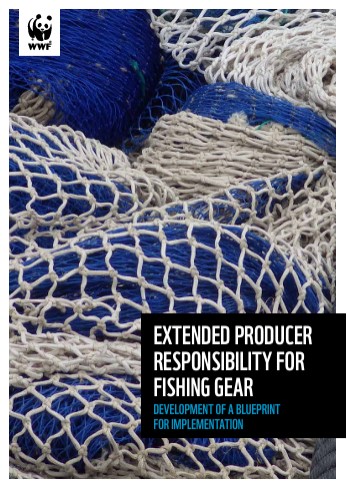As negotiations over a binding global Treaty to end plastic pollution continue, fishing gear is in the spotlight. It’s thought to make up around 7 per cent of all the plastic in the ocean,1 and visual surveys suggest that 70 per cent by weight of floating microplastic debris is fishing-related.2 Recent studies estimate that nearly 2 per cent of all fishing gear is abandoned, lost or discarded each year, with some types – particularly bottom trawls and longlines – lost at higher rates.3 Quite simply, we won’t fix the problem of plastic pollution without a strategy for targeting this particular source of waste.

During the discussions over the Treaty, extended producer responsibility (EPR) schemes for fishing gear has emerged as one aspect of a suite of measures to include in it. In addition, European Union Directive 2019/904 has already mandated the establishment of EPR for fishing gear at a regional level for Member States by the end of 2024.
As for other product categories, EPR is an emerging environmental policy approach that expands producers’ obligations beyond the product’s active use phase to encompass its entire life cycle. Essentially operating on the ‘polluter pays’ principle, EPR shifts waste management obligations and costs to producers, facilitating a move towards a circular economy by financing sustainable waste management, including a collection and treatment infrastructure.
WWF believes that the Treaty must include a binding obligation for each party to establish their own EPR systems; or any other system that serves the same purpose, such as take-back systems for fishing gear.


